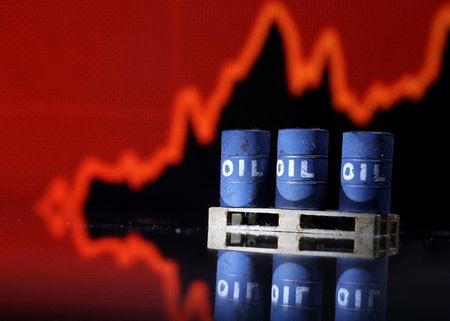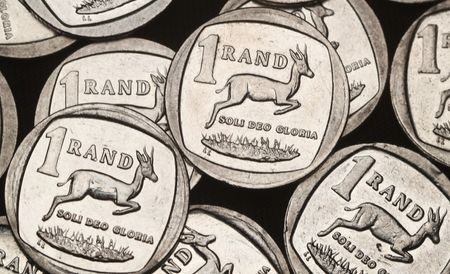By Seher Dareen
(Reuters) – Oil prices steadied on Friday as concern about oversupply and weaker U.S. demand were offset by supply disruption risks from conflict in the Middle East and Ukraine.
Brent crude futures rose 42 cents, or 0.6%, to $66.79 a barrel by 1020 GMT and U.S. West Texas Intermediate crude gained 31 cents, or 0.5%, to $62.68.
The Brent and WTI benchmarks fell by 1.7% and 2% respectively on Thursday.
“Brent crude is essentially flat on the week, but after a volatile ride …(which) reflects the market’s ongoing struggle to balance growing surplus risks against persistent geopolitical uncertainty and resilient refined product margins,” SEB Research analyst Ole Hvalbye said in a note.
A monthly report from the International Energy Agency on Thursday said that global oil supply would rise more rapidly than expected this year because of planned output increases by the OPEC+ group comprising the Organization of the Petroleum Exporting Countries and allies such as Russia.
However, OPEC’s own report later in the day made no change to its relatively high forecasts for oil demand growth this year and next, saying the global economy was maintaining a solid growth trend.
While there is a risk of a tumble in oil prices, factors such as tightness in the distillates market, sustained buying from China to fill inventories and potential sanctions on Russia and secondary sanctions on its customers are keeping the market supported, said PVM Oil Associates analyst John Evans.
A drone attack on Russia’s northwestern port of Primorsk – one of the country’s largest oil and fuel export terminals – set fire to a vessel and a pumping station on Friday, the regional governor said.
On the supply side, India’s largest private port operator, Adani Group, has banned tankers sanctioned by Western countries from entering all of its ports, three sources told Reuters and documents show, potentially curbing Russian oil supplies.
India is the biggest buyer of Russian seaborne oil, mostly shipped on tankers that are under sanctions by the European Union, United States and Britain.
(Reporting by Seher Dareen in London and Sam Li and Lewis Jackson in Beijing; Editing by David Goodman)











